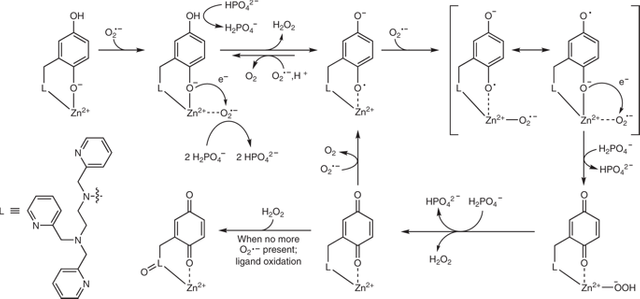
Oxidative stress is a well-known theme when it comes to aging.
Oxidative stress, which is an Anglicism (oxidative stress), is an attack of cells by free radicals.
It is not a disease but a physiopathological mechanism that corresponds to an excess of reactive evil species
controlled which promotes accelerated aging or disease.
Indeed, oxidative stress can cause an acceleration of aging and partly reduces the expectation.
This makes it a topic of study very present in the scientific literature, in the way of designing new healthy diets - or even in the sales arguments of some rejuvenating cosmetic treatments.
Among recent discoveries, a team of German researchers from the Friedrich-Alexander University of Erlangen-Nuremberg (FAU) discovered that zinc can activate an organic molecule, and help protect against oxidative stress.

THE BENEFITS OF ZINC AGAINST OXIDATIVE STRESS
Zinc is a trace element that we need to stay healthy.
Researchers have found that zinc can protect the superoxide that causes oxidative stress when it is combined with a component in foods such as wine, coffee, tea and chocolate.
Remember that a superoxide free radical is a toxic form of oxygen produced during aerobic respiration (breathing mode using oxygen as an oxidizer).
This component is a group of hydroquinone present in polyphenols, in other words the vegetable substances responsible for smell and taste.
Zinc activates the hydroquinone groups, producing a natural protection against superoxide, a byproduct of human cellular respiration that damages the body's own biomolecules, for example proteins or lipids, as well as the human genome.
Superoxides are thought to play a role in the aging process and in a number of diseases such as inflammation, cancer or neurodegenerative diseases.

COMBAT SUPEROXYDES
Hydroquinone, which is an aromatic organic phenol-related compound, alone is not capable of decomposing superoxide.
However, if zinc and hydroquinone combine, a metal complex is created that mimics the enzyme superoxide dismutase (SOD).
These enzymes protect the body from degradation processes caused by oxidation and have an antioxidant effect.

In this way, superoxides can be metabolized and damage to the body avoided, says the study.
For the first time, the function of this enzyme has been copied without returning to the redox-active transition metals such as manganese, iron, copper or nickel.
Although metals can also have an antioxidant effect, all positive effects can quickly reverse if they are too abundant, and may even cause an increase in oxidative stress.
Finally, zinc is much less toxic than the transition metals mentioned above, which makes it possible to create new drugs or supplements with far fewer side effects.
The researchers say it would also be plausible to add zinc to foods containing hydroquinone naturally to improve the health of consumers.
They concluded by pointing out that the addition of zinc would most certainly be possible with wine, coffee, tea or chocolate in the near future, but that any alcohol content would destroy the positive effects of this combination.
SOURCES
Superoxide dismutase activity enabled by a redox-active ligand rather than metal. Nature Chemistry, 2018; https://www.nature.com/articles/s41557-018-0137-1, DOI: 10.1038 / s41557-018-0137-1
Superoxide dismutase, a powerful natural antioxidant, now available orally, https://link.springer.com/article/10.1007/s10298-005-0087-9